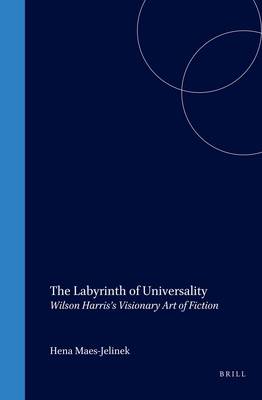
- Afhalen na 1 uur in een winkel met voorraad
- Gratis thuislevering in België vanaf € 30
- Ruim aanbod met 7 miljoen producten
- Afhalen na 1 uur in een winkel met voorraad
- Gratis thuislevering in België vanaf € 30
- Ruim aanbod met 7 miljoen producten
€ 300,95
+ 601 punten
Omschrijving
Wilson Harris, many times nominated for the Nobel Prize in Literature, is a British writer of Guyanese origin, one of the most original novelists and critics of the twentieth century, and probably the first to use and interpret the aesthetically fruitful notion of cross-culturalism. Harris's insights into the profound symbiosis between history, culture and artistic expression were initially inspired by his encounters with Amerindians in the Guyanese rainforest interior, where he led many surveying expeditions. These encounters aroused his interest in pre-Columbian peoples, who figure prominently in many of his novels and stories. His perception of the Guyanese landscape is the source of his unique narrative rhetoric, richly metaphoric language, and philosophy of existence: i.e. the epistemological and phenomenological interrelatedness between man, animal life, and nature. The present study offers magisterial, in-depth interpretations of Harris's exhilaratingly complex and shape-shifting fictional worlds.
Specificaties
Betrokkenen
- Auteur(s):
- Uitgeverij:
Inhoud
- Aantal bladzijden:
- 592
- Taal:
- Engels
- Reeks:
- Reeksnummer:
- nr. 86
Eigenschappen
- Productcode (EAN):
- 9789042020320
- Verschijningsdatum:
- 1/01/2006
- Uitvoering:
- Hardcover
- Formaat:
- Genaaid
- Afmetingen:
- 155 mm x 230 mm
- Gewicht:
- 1133 g

Alleen bij Standaard Boekhandel
+ 601 punten op je klantenkaart van Standaard Boekhandel
Beoordelingen
We publiceren alleen reviews die voldoen aan de voorwaarden voor reviews. Bekijk onze voorwaarden voor reviews.










